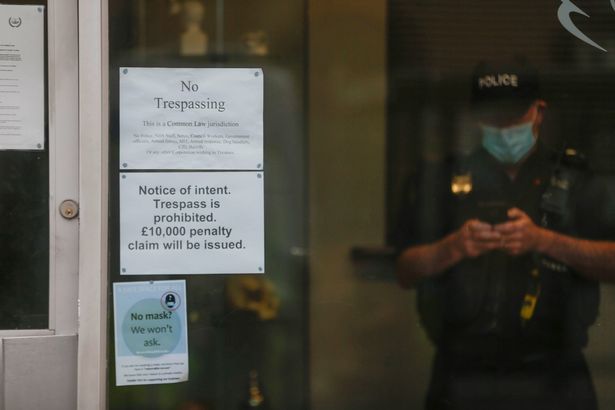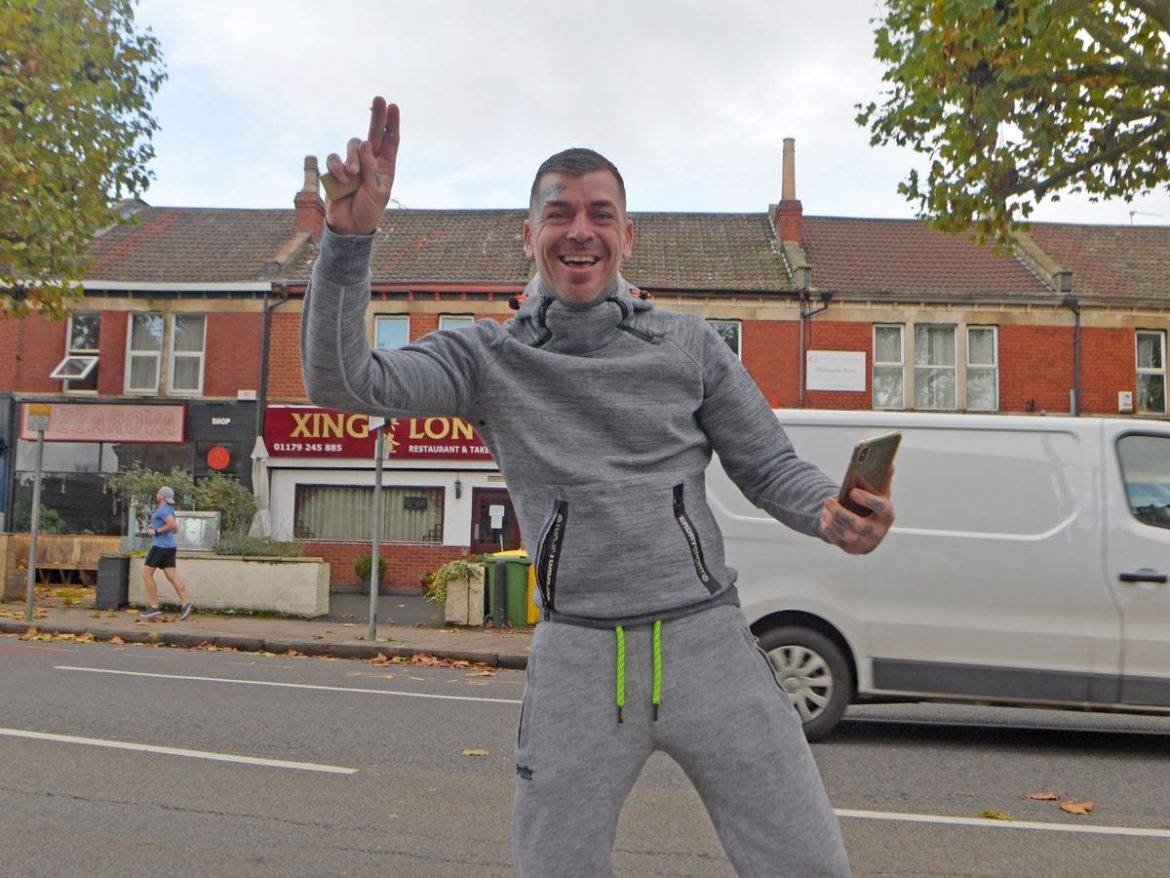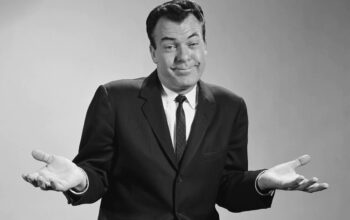Lockdown-breaching tattoo studio Holey Skin must pay a £1,000 fine.
Aron Walton refused to close his Gloucester Road parlour after the second coronavirus lockdown was imposed on November 5, saying he did not “consent” to the rules.
He kept the business open for more than a week, but Bristol City Council and police officers used a locksmith to force entry on November 13.
A senior environmental health officer handed Mr Walton a fixed penalty notice and seized six pieces of tattooing equipment.
The council has today (November 16) revealed the fine values £1,000.
A council spokesman said it came after “persistent breaches of Covid-19 rules despite repeated requests to comply”.
He added: “Council enforcement officers, supported by officers from Avon and Somerset Police entered the business on Friday following a breach of a prohibition notice and receipt of a warrant from the courts.
“Prior to this officers had repeatedly asked the owner to comply with Covid-19 regulations, issuing the prohibition notice after attempts to negotiate with the business failed.”
Councillor Steve Pearce, regulatory services cabinet member, said: “I recognise the pressure businesses face right now, both those required to close during lockdown and those allowed to remain open.
“Public health advice and Government legislation in relation to Covid-19 lockdown are in place to protect individuals and communities, not damage businesses.
“We are working with businesses and individuals to ensure they get access to the support they are entitled to. We must however challenge behaviour that puts people at risk and will work with our partners in the police to do so where appropriate.”

Last week Mr Walton told a police officer he would “be issuing £10,000 fines for any more visits” from the authorities. He claimed police had attended seven times during the second lockdown.
But on Friday, at least nine police officers and several council officers were joined by a locksmith, who forced entry to Holey Skin while Mr Walton told him: “Don’t blow through the hole please, you could have Covid.”
Mr Walton warned council officers he would “bill them for the damage” caused to his door.
As the environmental health officer handed him the fine, he said: “I do not consent, I do not accept it.”
The tattooist shared footage of the incident on his Instagram account on Friday evening.
In the days since, he has continued to post videos online, saying he does not “consent” to the penalty.
When the council attended on Friday, Mr Walton protested: “You have no wet signature from a judge. You have no authority here. You have no jurisdiction here.
“I stand under common law. You are committing criminal offences against me right now.”
A small group of protesters gathered outside, shouting criticism of the lockdown and Government.
An Avon and Somerset police spokesman said: “A man was arrested to prevent a breach of the peace before later being de-arrested once the warrant had been completed.”
Mr Walton has presented arguments against lockdown which appear to be rooted in the “freeman on the land” conspiracy theory.
Its proponents say laws only apply to someone with their consent. No such argument has ever succeeded in court.
https://www.instagram.com/tv/CHid_18pPc-/?utm_source=ig_web_button_share_sheet
Common law is created by the judiciary through its decisions in the courts, under the principle of binding precedent.
But it is overruled by statutory law, the laws written and passed by Parliament – such as the Covid legislation – under the constitutional principle that Parliament is Sovereign.
Since March, the council has issued two closure notices and eight fines for breaches of Covid-19 guidelines. Bristol Live has asked which businesses are responsible for the breaches.
Lockdown laws say non-essential businesses like tattoo studios must close.
Households are also banned from mixing indoors.



